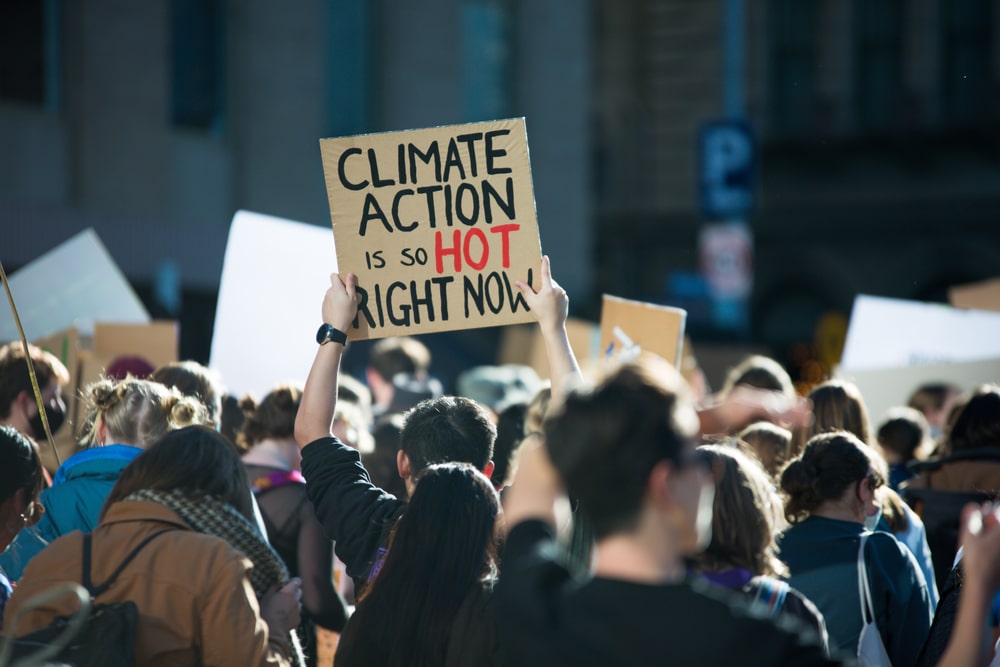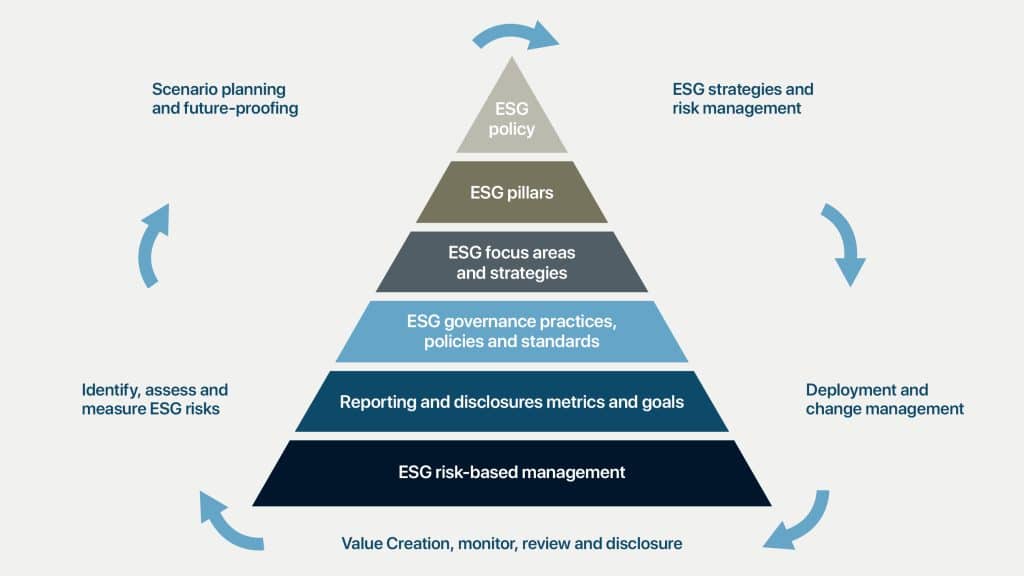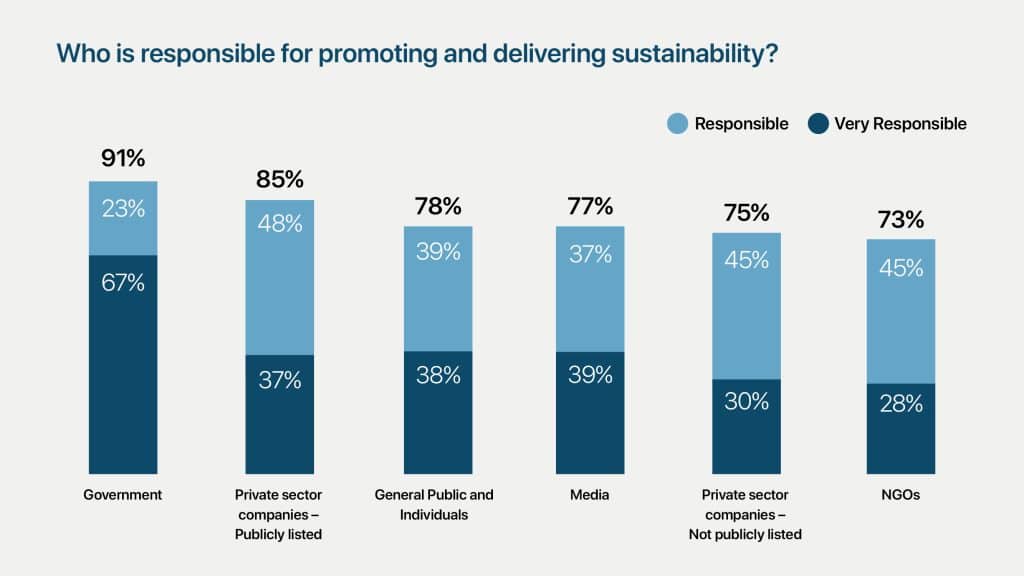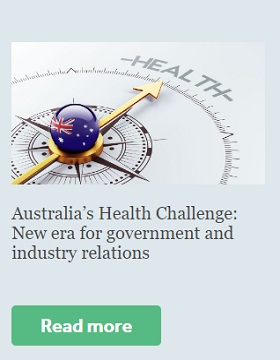
Public Affairs Tracker: Building Corporate Reputation in the World’s Second Largest Economy
Driving Access to Accurate Health Information
Australia’s Climate Challenge: What We Can Expect Under the New Government

Australia’s Climate Challenge: What We Can Expect Under the New Government
July 2022

by Louise Humphreys, Account Director, Sydney. Louise is a communications and public affairs specialist with more than 25 years experience working with multinational companies across a range of sectors, including financial services, technology, healthcare, travel and government.
Now that the ministers are sworn in and the Albanese government is in power, will Australia be able to repair its reputation as a climate laggard? And how will the government’s vision for climate change action impact corporate Australia?
With more Greens MPs in the house than ever before, and an 1.9% increase in primary votes for the Greens to 12.3%, we can deduce that the people of Australia want to see action on climate change. The new Prime Minister promises to deliver to ‘end the climate wars.’
We can expect the new Labor government to focus on the many promises it made on climate and energy including a 43% cut in carbon emissions by 2030, as outlined in its Powering Australia Plan. According to Carbon Brief, Labor’s plan seeks cuts primarily via transport, industry and carbon farming and electricity sectors.
Two things are clear from what we are seeing right now: Labor is under pressure to deliver on its promised changes and the public expects private organisations to play a leadership role in holding the government to account.
The tide is turning in Australia and the spotlight is on climate change like never before. The new government is keen to deliver on its promised changes and the public expects private organisations to take a leadership role.
What the increased focus on climate means for Australia’s corporate sector
Firstly there is a chance for corporations to partner with the government to help it deliver its climate goals. Organisations that can help the government achieve its targets have the opportunity to develop strong relationships with the new government. Understanding the government’s objectives and investing in government relations to forge strong connections with the new ministry and departments would be a wise move for any organisation, regardless of sector — but particularly in transport, energy and fossil fuels as these are the industries earmarked by Labor to play a key part in reducing emissions.
As the government seeks to rollout emission targets, the private sector must play its part. Organisations need to have a robust ESG strategy and the ability to demonstrate actual change. A powerful ESG strategy will not just pay lip service to ‘raising awareness’, but demonstrate tangible, measurable actions on climate.
While broad based ESG reporting is currently voluntary in Australia, mandatory reporting requirements are on the horizon and companies who do not rise to meet the demands of ESG accountability and transparency face the risk of shareholder and employee activism, investor divestment and future regulatory action.
The Australian Securities and Investment Commission (ASIC) and the Australian Competition and Consumer Commission (ACCC) have both shown increasing interest in ESG-related disclosures by fund managers and companies, with ASIC starting an investigation of greenwashing by superannuation and managed funds last year and the ACCC warning that companies falsely promoting their green credentials would face an enforcement crackdown.
ESG reporting in Australia varies by sector with healthcare falling behind
A recent report by the Australian Council for Superannuation Investors’ (ACSI) annual ESG Reporting Trends researches ESG disclosures for ASX 200 companies up to March 31, 2022. Pleasingly, the report found that only 6 percent of ASX 200 companies provided no ESG reporting at all.
104 companies scored the highest rating and were considered ‘comprehensive’ reporters. This compares to 2008 when the ESG reporting commenced and there were only 10% of ASX companies considered to be comprehensive reporters.
Of note, the report also found that some sectors led the way in ESG reporting and these were largely utilities, consumer staples, materials and real estate. However, it also highlighted the fact that the healthcare sector was lagging behind other sectors and no top 200 listed healthcare company received the comprehensive top rating for ESG reporting.
ESG should be a responsibility at the board level

For ESG to be truly successful, it requires top-down commitment that prioritises a broad array of transparency and reporting. While the first stage of ESG is having policies and reporting on them, communicating to stakeholders is an important element in the mix.
Organisations that get ahead of their emissions targets have the opportunity to take an industry-leading position that will provide a competitive advantage in future. Undoubtedly, a commitment to reduced emissions is not a nice-to-have but an essential element of business, so getting on the path to net zero over the coming decade is essential.
It is encouraging to also see that Australian boards are increasingly tying executive remuneration to ESG corporate measurements.
Consumers expect leadership from corporate Australia on climate
We know from Sandpiper’s 2022 reputation capital report that consumers are looking to organisations for leadership on sustainability matters. Across Asia Pacific, 82% of people reported that corporate citizenship on environmental matters is important or very important in determining reputation. And when asked, ‘who is responsible for promoting and delivering sustainability?’, consumers across Asia-Pacific listed the following sectors as responsible:
- government, 91%
- publicly listed companies, 85%
- general public and individuals, 78%
- media, 77%
- unlisted, private sector companies, 75%
- NGOs, 73%

ESG communications are vital to an organisation’s reputation
The tide is turning in Australia and the spotlight is on climate change like never before. The new government is keen to deliver on its promised changes and the public expects private organisations to take a leadership role. Organisations therefore need to listen to the winds of change and ensure their climate change commitments are on par with public and government expectations.
As a result, companies will face increasing pressure from their investors around ESG performance and disclosure, and we have seen a surge in demand for companies wanting advice on how to engage on this topic. And of course no organisation wants to be accused of greenwashing!
Companies that succeed in the future will make sustainability and ESG a core strategic part of their business and will be able to effectively communicate this to their stakeholders. Transparency will be key and any communications plan should include being prepared for investor and media questions about ESG targets and strategies.
Successful companies will also understand that strong ESG and sustainability performance, including climate action, are vital to its reputation.
Corporates have a strong role to play in supporting climate ambitions, and in realising a more sustainable living environment for generations to come. Contact us to learn more about how your organisation can be part of this conversation and forge stronger stakeholder relations around sustainability and ESG.
You may also like:




